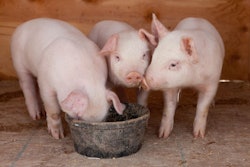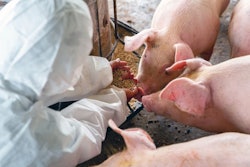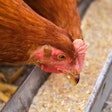
Some companies in the southeast Asian state stand before the competition authority, accused of interference in the markets for wheat, poultry meat, eggs and other essential products.
Bangladesh’s poultry industry is among the sectors expressing concerns of excessive control over the national market by the largest industrial groups.
The poultry association fears the imminent collapse of the sector, reports The Business Standard News.
A small number of institutions controlling the industry increased the prices of chicks and poultry feed overnight, alleged Mohammad Suman Howladar, president of the Bangladesh Poultry Association.
“Government institutions support certain industrial groups without considering the condition of the small businesses,” he said. “If this continues, the poultry industry will be destroyed in the future.”
According to Howladar, the country’s poultry farms stands at around 60,000, down from 160,000 formerly.
Calls for more government controls on prices
This week, the same source reported from a meeting where there were calls for more accountability from government bodies regarding prices. Speakers at the event called for particular focus on eggs, poultry meat, rice, and other daily food and domestic essentials.
Above all, the meeting leader urged the Bangladesh Competition Commission to address with urgency what he called “criminal offenses” committed by market syndicates.
Allegations of market destabilizing practices
Previously, BDnews24 reported that nine companies are the subject of investigations by the Commission. Charged with profiteering from abnormal price increases are firms involved in the rice, wheat flour, poultry, and domestic chemicals such as soap and detergent.
Facing charges on egg pricing are the leaders of Paragon Poultry and Tejgaon Egg Merchants. Paragon is also accused of irregularities over the pricing of chicken meat.
Already, the Commission has heard from Kazi Farms, which faced allegations of destabilizing the poultry markets.
Responding to the company’s statement, the Commission chair questioned the validity of the firm’s daily egg auction. Kazi Farms has until October 6 to provide full records of these auctions to the Commission.
According to this source, a majority of the cases were filed against companies involved in trading rice. In addition, six firms are egg producers and traders, and six produce and market broiler chickens.
Excessive price rises revealed in Bangladesh market study
It has been accepted that global commodity prices have risen sharply as a result of Russian aggression against Ukraine in the wake of the coronavirus (COVID-19) pandemic.
Resulting disruption of the markets appears to have been used by firms and traders in Bangladesh for excessive prices, according to The Daily Star. It cited a market intelligence agency report on prices of lentils, onions and sugar. These had risen in the country in the year to August, while they had fallen globally. For wheat, the global price had increased by 8%, but it was 67% more expensive on the domestic market.
More on the Bangladesh feed market
In June, heavy rainfall in the north and northeast of the country caused widespread flooding in some districts, reported the U.S. Department of Agriculture Foreign Agricultural Service (FAS) the next month.
As well as for human consumption, wheat is used in cattle feed in Bangladesh, according to FAS. It is forecast use for this purpose at 600,000 metric tons for the marketing years starting in July 2021 and July 2022. High prices and reduced availability on global markets were expected to reduce the consumption of wheat as food over this period.
A few months ago, FAS forecast a rise of 1% in the consumption of corn in Bangladeshi feeds for poultry and cattle to 7.15 million metric tons. Corn accounts for around 60% of these diet formulations, and the sectors were thought likely to expand over the study period. In response to rising prices, members of the national feed association said they would substitute broken rice and bran for some of the corn in animal feeds.
In March 2021, poultry producers and feed companies in Bangladesh were calling for government support.
Collapsing demand for poultry during the COVID pandemic had brought the sector to the brink of crisis, reported The Daily Star. The two sectors were proposing a 10-year tax break. This, they said, would allow for recovery from losses, which were estimated at BDT29 billion (US$286 million).















